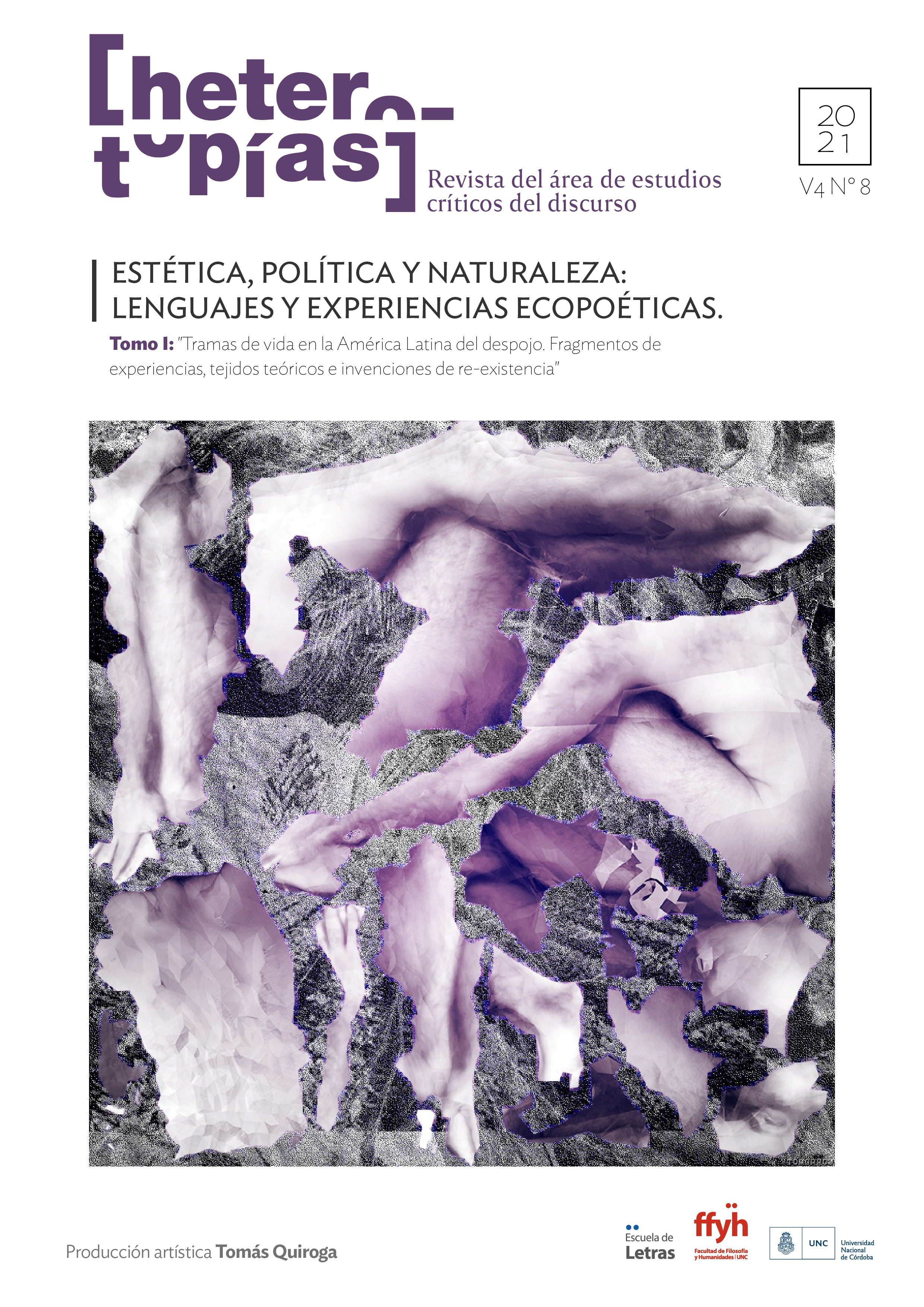Making presence: Regina José Galinto, “Earth”
Main Article Content
Abstract
In Earth (2014), Guatemalan performance artist Regina José Galindo stands naked next to an ever-widening pit. She performs an event recounted by survivors of genocide at the trial of the ex-dictator Efraín Ríos Montt. The testimony tells of how people were forced to dig a massive pit and then stand in front of it, to facilitate their execution and interment by the armed forces. In this one art acción, Galindo captures the historical violence of biopower from the conquest to the present. Using the methodology of the performance itself, chapter 4 separates the never-ending tragedy into three isolated (but internally contiguous) scenarios that meld almost imperceptibly from conquest, colonialism, ongoing coloniality, and imperialism. What does the performance do or transmit? Is the performance itself a form of testimony? Art from the space of death shows the now and always of criminal practice, as genocide and as environmental ruin.
Downloads
Article Details

This work is licensed under a Creative Commons Attribution-NonCommercial-ShareAlike 4.0 International License.
Those authors who have publications with this journal, accept the following terms: Those authors who have publications with this journal, accept the following terms:
a. The authors will keep their copyright and guarantee to the journal the right of first publication of their work, which will be simultaneously subject to the Creative Commons Attribution - Non-Commercial - Share Alike (by-nc-sa) Attribution License; no commercial use of the original work or any derivative works is allowed, the distribution of which must be done with a license equal to the one that regulates the original work.
b. Authors may adopt other non-exclusive license agreements for the distribution of the published version of the work (e.g., deposit it in an institutional telematic archive or publish it in a monographic volume) provided that the initial publication in this journal is indicated.
c. Authors are allowed and recommended to disseminate their work through the Internet (e.g. in institutional telematic archives or on their website) before and during the submission process, which may lead to interesting exchanges and increase the number of citations of the published work. (See The effect of open access).
How to Cite
References
Arendt, H. (1959) The Human Condition. New York: Doubleday Anchor.
Aristóteles (1987) The Poetics of Aristotle. Traducción y comentario de Stephen Halliwell. London: Duckworth.
Bourriaud, N. (2002). Relational Aesthetics. Traducción de Simon Pleasance y Fonza Woods con Mathieu Copeland. Paris: Les presses du reel.
Domínguez, R. (2012) “Poetry, Immigration and the FBI: The Transborder Immigrant Tool”, Entrevista por Leslie Nadir, Hyperallergic, julio de 2012. Recuperado de: http://hyperallergic.com/54678/poetry-immigration-and-the-fbi-the-transborder-immigrant-tool/.
Franco, J. (2013) Cruel Modernity. Durham, NC: Duke University Press.
Goldman, F. (2006) “Regina José Galindo,” Artists in Conversation, BOMB Magazine, 1 de enero de 2006. Recuperado de: http://bombmagazine.org/article/2780/regina-jos-galindo
Grandin, G. (2000) The Blood of Guatemala: A History of Race and Nation. Durham, NC: Duke University Press.
Las Casas, B. (1992) Short Account of the Destruction of the Indies. Edición y traducción por Nigel Griffin. Londres: Penguin Books.
Lepecki, A. (2006) Exhausting Dance: Performance and the Politics of Movement. London, NY: Routledge.
Levinas, E. (1991) “Exteriority and the Face”. Totality and Infinity: An Essay on Exteriority. Traducido por Alphonso Lingis, 187-240. Dordrecht: Kluwer Academic.
MacLean, E. Roberts, S. Eisenbrandt, M. Doyle, K. and Burt, J. M. (2013). Judging a Dictator: The Trial of Guatemala’s Ríos Montt. New York: Open Society Justice Initiative. Recuperado de: https://www.opensocietyfoundations.org/sites/default/files/judging-dicatator-trial-guatemala-rios-montt-11072013.pdf.
Mbembe, A. (2003) “Necropolitics”. Traducido por Libby Meintjes, Popular Culture, Volumen 15, núm. 1, invierno 2003: 11-40.
Menchú, R. (1985) I, Rigoberta Menchú, an Indian Woman in Guatemala. London: Verso.
Mouffe, Ch. (2013) Agonistics: Thinking the World Politically. London: Verso.
Quijano, A. (2007) “Coloniality And Modernity/Rationality”, Cultural Studies, 21, nos. 2-3: 168-78.
Sófocles (1914). “Antigone”, The Harvard Classics. Recuperado de: https://www.ohio.k12.ky.us/userfiles/1153/Classes/7790/antigone.pdf.
Subcomandante Marcos (2001) Our Word Is Our Weapon: Selected Writings. Editado por Juana Ponce de León. New York: Seven Stories Press.
Tedlock, D. (2003) Rabinal Achi: A Mayan Drama of War and Sacrifice. Oxford: Oxford University Press.
